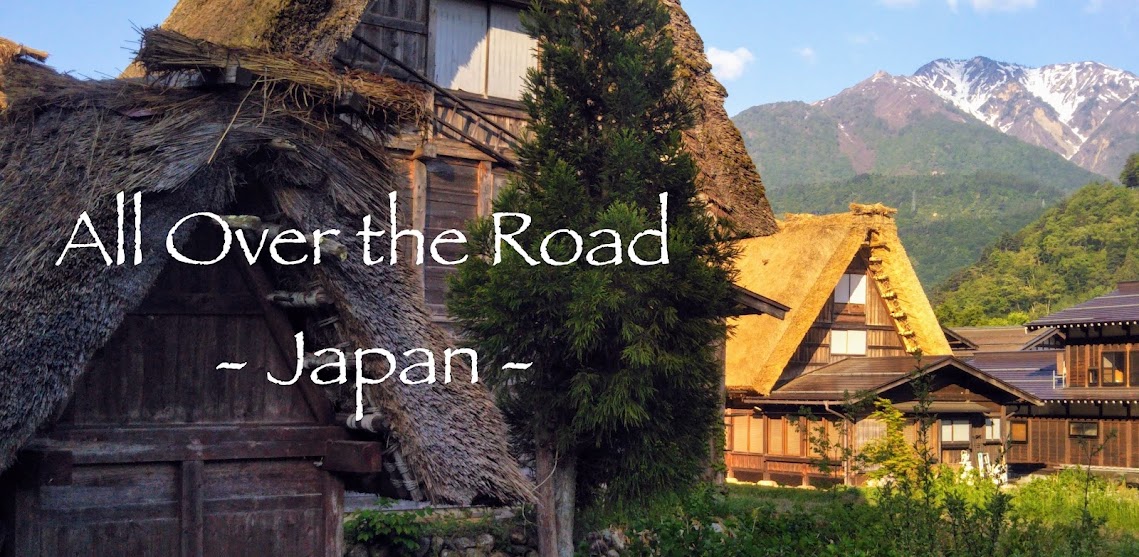 It is commonly known that the Japanese concept of harmony, often depicted by the character ‘Wa’, is a prevalent aspect of society and culture here. The idea appears in the uniforms worn not only by junior high and high school students but by the women working in banks and on tour buses. The businessmen all wear the same color suit – a blue so dark it’s black – with a necktie to match. Some of them get a little crazy and wear dress shirts with pinstripes but this is not a practice for the meek. Punctuality is a kind of religion here; it is not uncommon to hear a very polite and formal announcement at the station that a train is running two minutes late. I don’t know how many times I’ve been on my way to meet a friend somewhere and gotten an email on my cell phone at the very stroke of our agreed meeting time: ‘Where are you?’ Back in my early days here I made the mistake of strolling into a lunch party fifteen minutes late. Everyone was seated quietly around the table, hands in their laps, staring at their food.
It is commonly known that the Japanese concept of harmony, often depicted by the character ‘Wa’, is a prevalent aspect of society and culture here. The idea appears in the uniforms worn not only by junior high and high school students but by the women working in banks and on tour buses. The businessmen all wear the same color suit – a blue so dark it’s black – with a necktie to match. Some of them get a little crazy and wear dress shirts with pinstripes but this is not a practice for the meek. Punctuality is a kind of religion here; it is not uncommon to hear a very polite and formal announcement at the station that a train is running two minutes late. I don’t know how many times I’ve been on my way to meet a friend somewhere and gotten an email on my cell phone at the very stroke of our agreed meeting time: ‘Where are you?’ Back in my early days here I made the mistake of strolling into a lunch party fifteen minutes late. Everyone was seated quietly around the table, hands in their laps, staring at their food.Japanese people are perhaps even better known for being interminably polite. No matter how fervently I try to explain to them how stupid their rules are, they will just keep smiling and bowing and telling me nicely that since the letter I am mailing is smaller than the standard size envelope I have to pay double postage. True story, and fully representative of the ‘rules, not reality’ approach to life here.
After eight years you’d think I should have seen it all, at least the broad strokes if not the infinite number of ways this Japanese manner of thinking can apply. Last night reminded me how much I still have to learn.
The topic for our English class was ‘Drinking with your co-workers.’ Yes, there are some common faces of life in Japan I can live very well with. For an hour my students fought and struggled to explain their opinions about whether Mark, a Canadian software engineer working in Tokyo, should make it a point to go out and socialize with the other people in his office after hours. (Personally I couldn’t comprehend Mark’s dilemma.) The idea behind this practice is that it facilitates understanding among co-workers which translates into a more productive and - why not use the word here? – harmonious work environment. (Mark, apparently, would rather go off and curl up with a pile of manga in a private booth in an Internet and comics café somewhere.)
As the class wound down, we came to the general concensus (of course) that Mark should at least go out with his colleagues once or twice a month. Okay, fair enough.
The revealing moment, however, came in the last few minutes of class as one of the students got on the subject of how Japanese people love to work, which in and of itself is not a bad thing but often results in Japanese people having scant free time to go out and – to use the expression they’d just learned – get a life. A life apart from not only work but co-workers as well. (Ah, so maybe Mark had a point after all...) He went on to say that he believed a lot of Japanese people felt this way, but no one has the mental fortitude (not the term he used) to rock the boat (not this one either) and put himself before his work on occasion. ‘Well, Hiroyuki,’ I said, looking into his eyes. ‘What’s the solution?’ He looked around the room. Everyone was watching, waiting for him to say what they were probably all thinking themselves. He looked back at me and opened his mouth. ‘There should be a law...’ He went on to explain that it just wouldn’t work if some people went out and got a life while others were still working – or drinking with their co-workers. He suggested the government should put a limit on time one needs to devote to his working life. That way everyone will have an equal amount of free time to enjoy as they pleased.
The Japanese Wa strikes again.
We ended class by deciding on the date for our ‘Bo-nen-kai’, the traditional year-end party all Japanese partake in - with their co-workers. We worked backwards from December, to find a Friday that everyone had free.
Our Bonenkai is next Friday, barely past the midpoint of November.
But that’s okay. Because then everyone will be able to make it.
